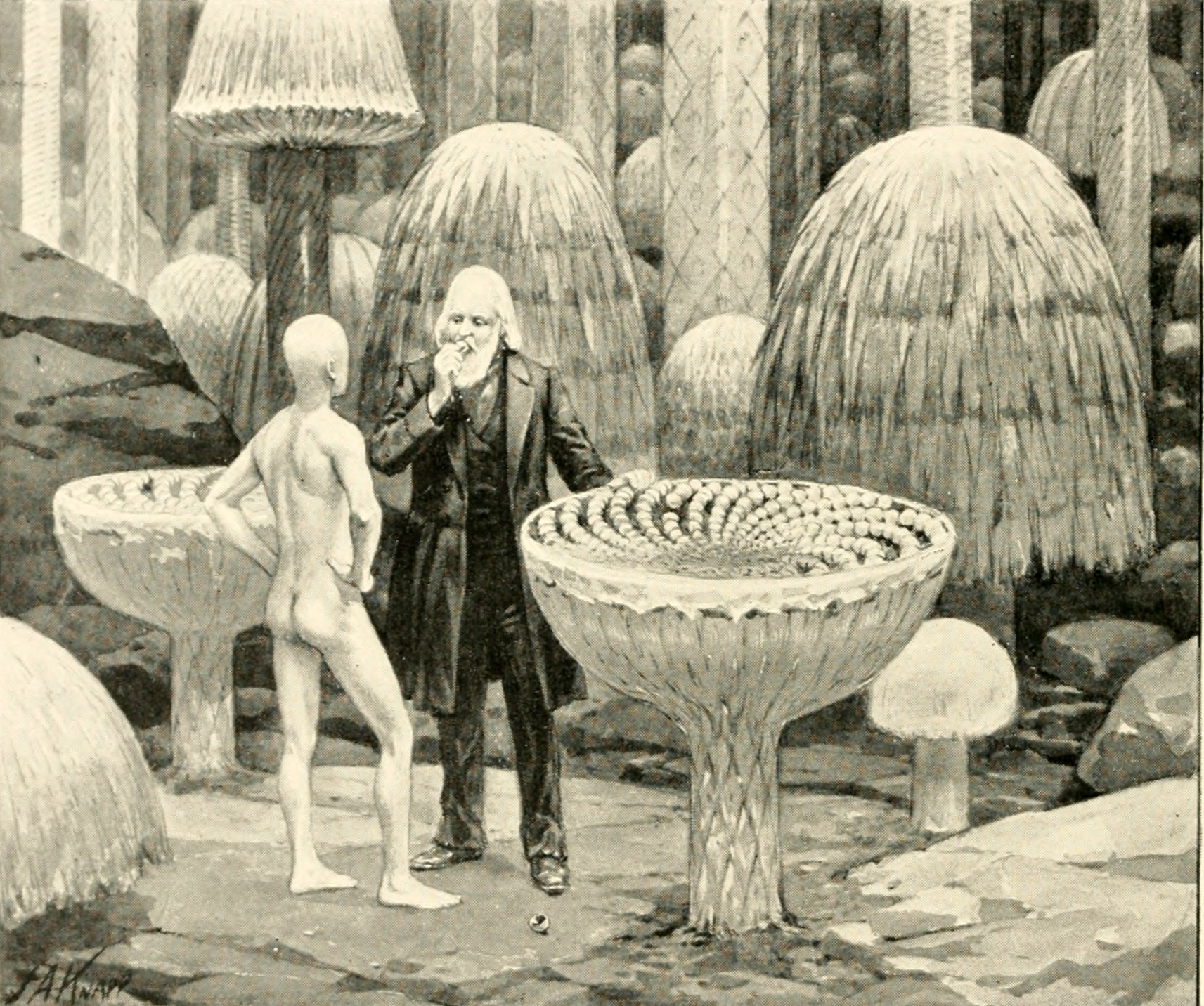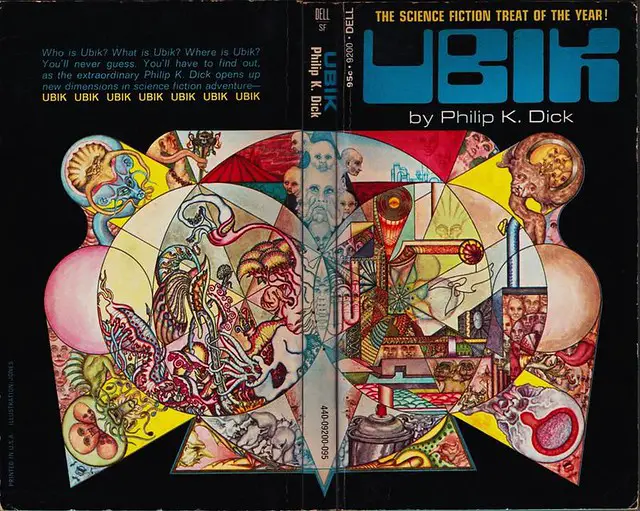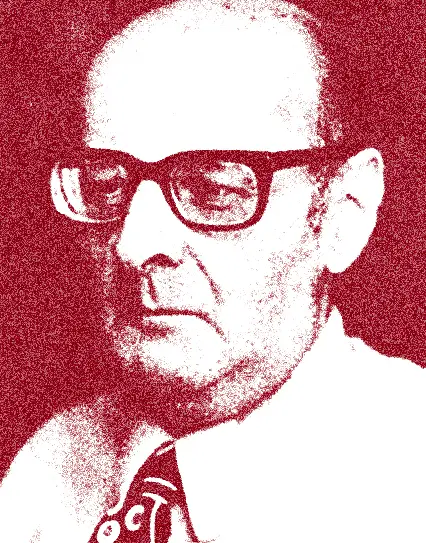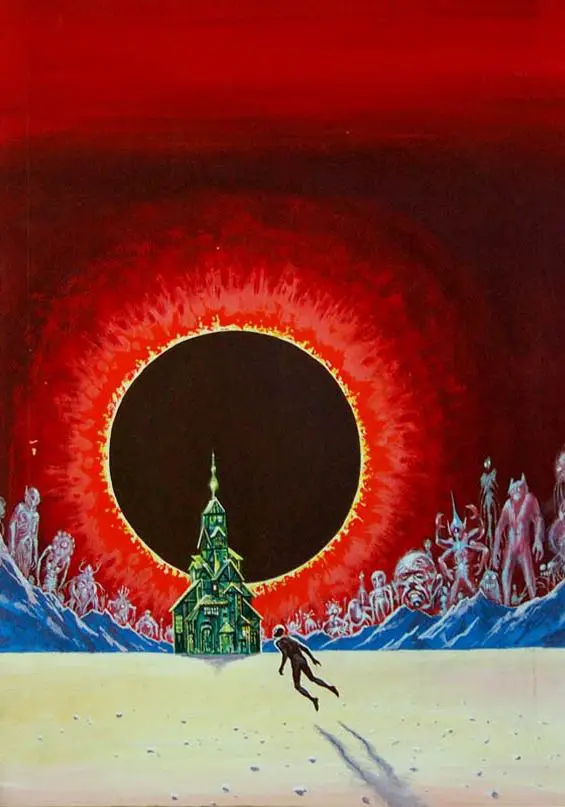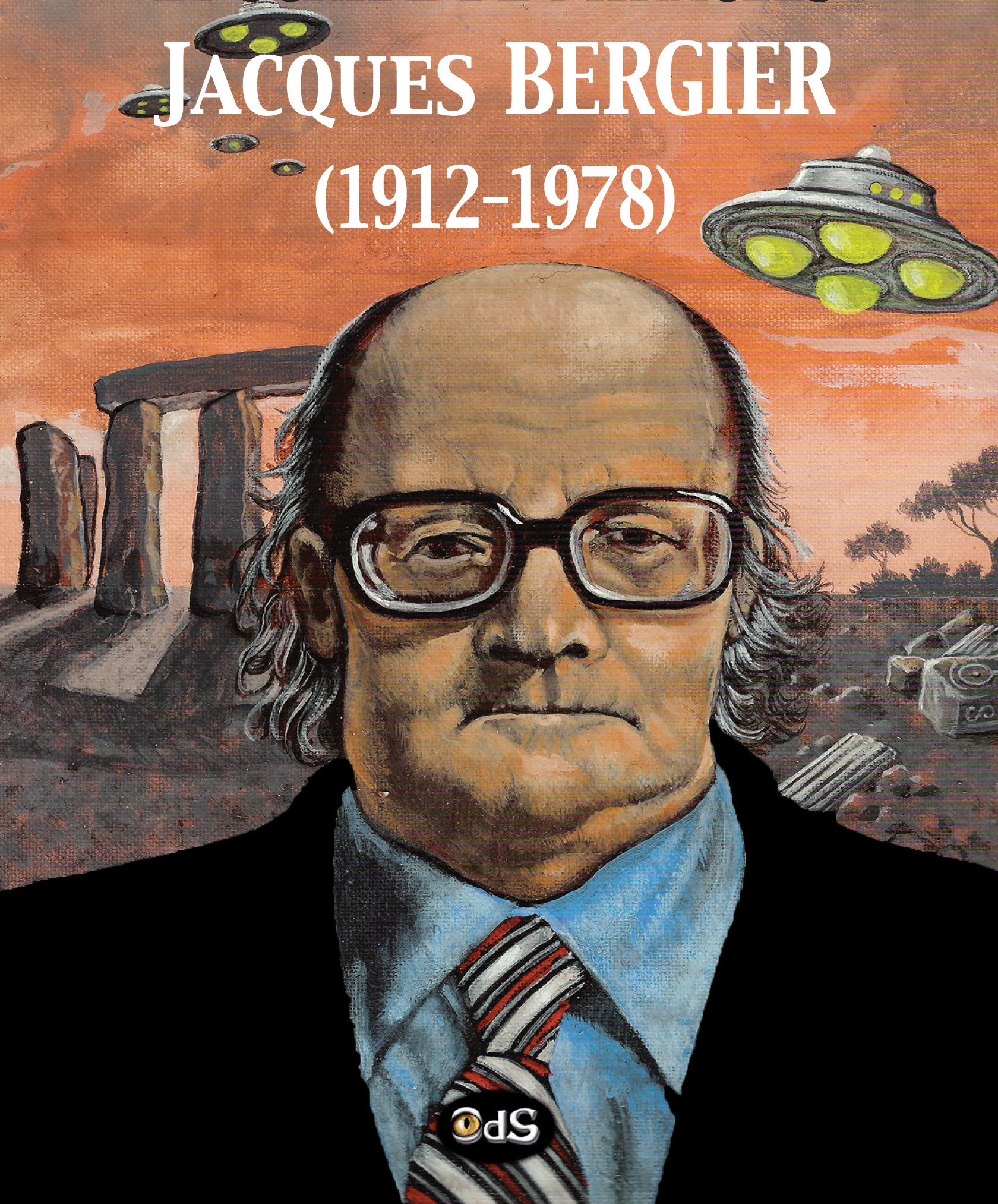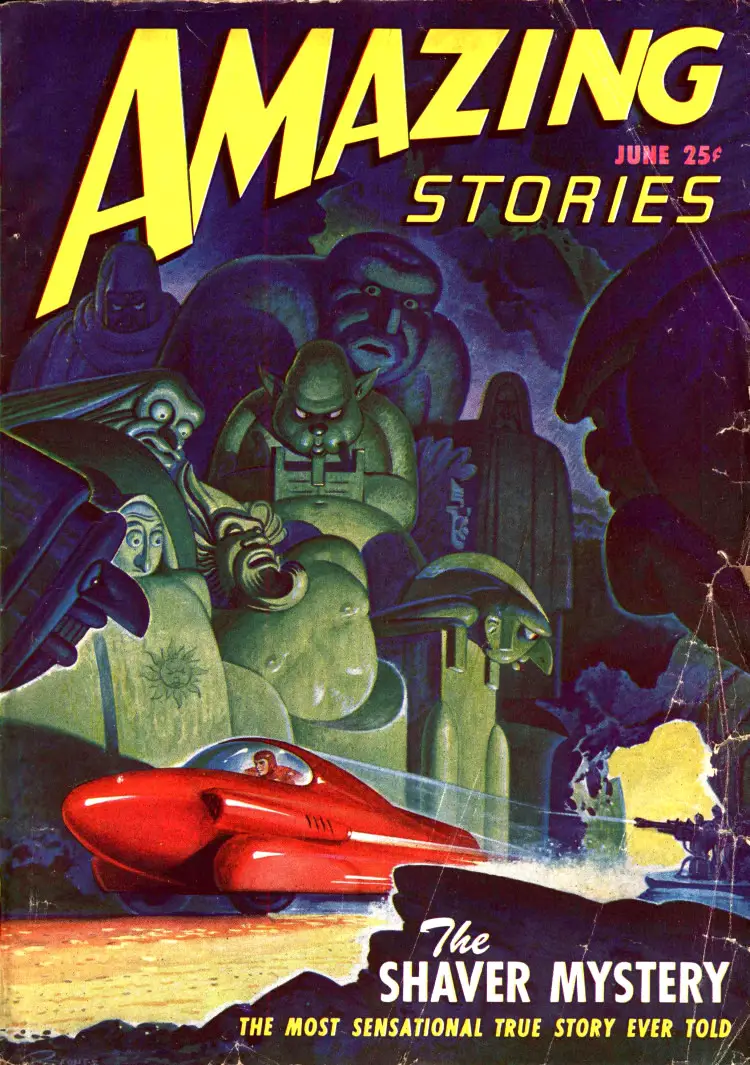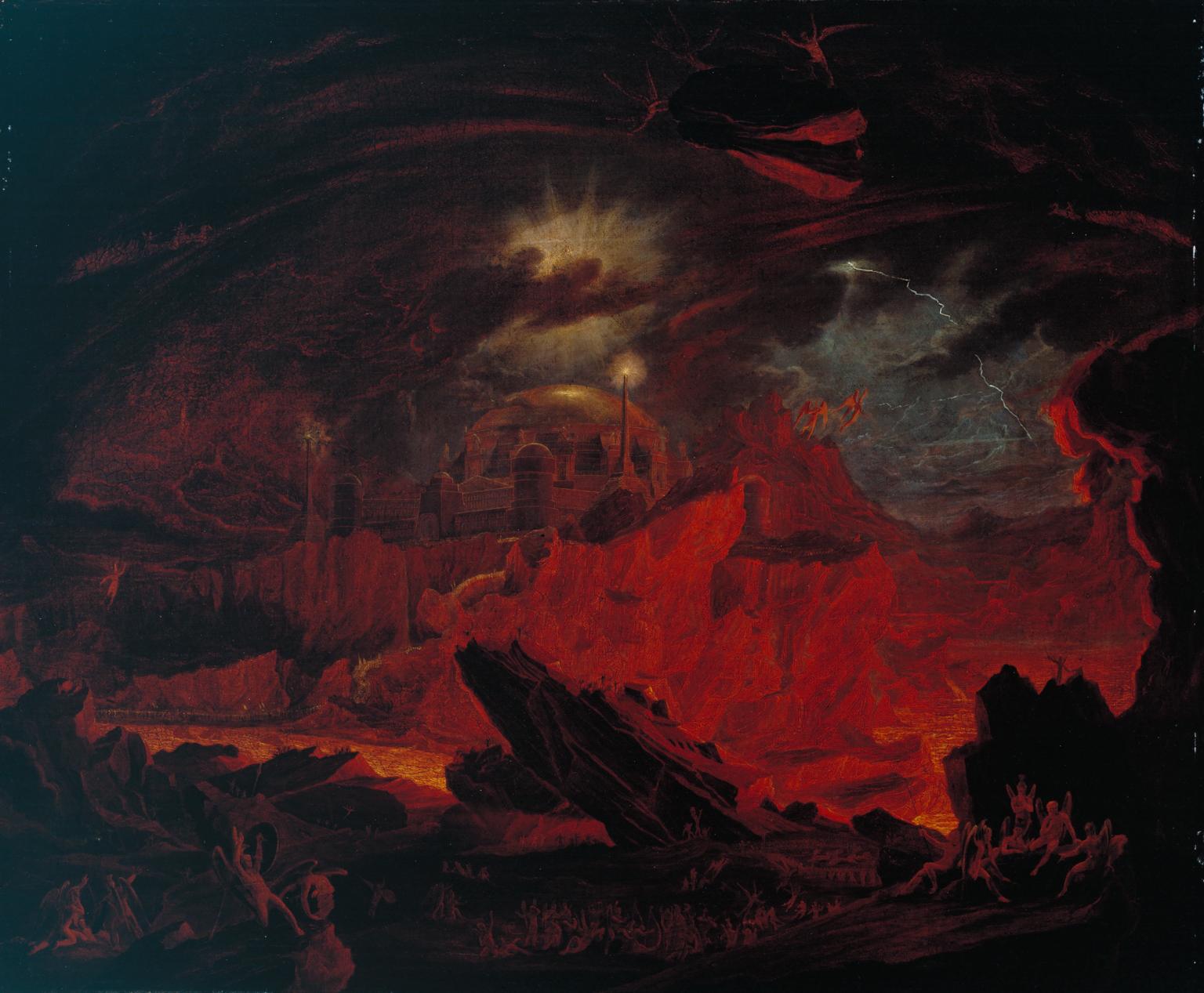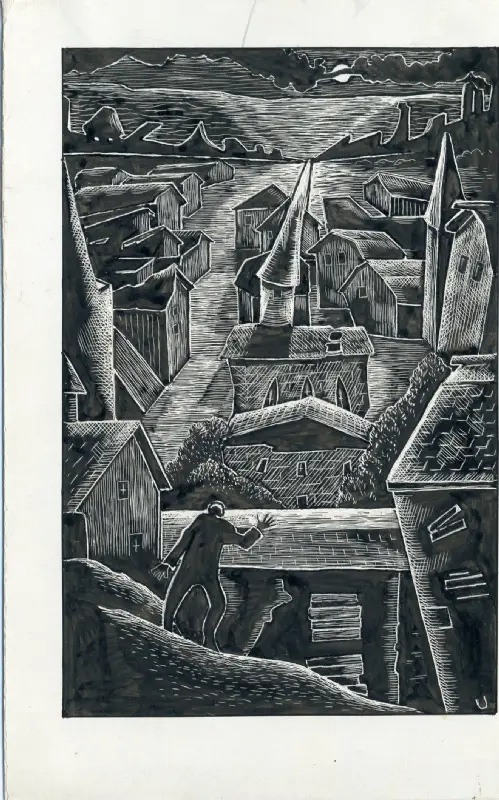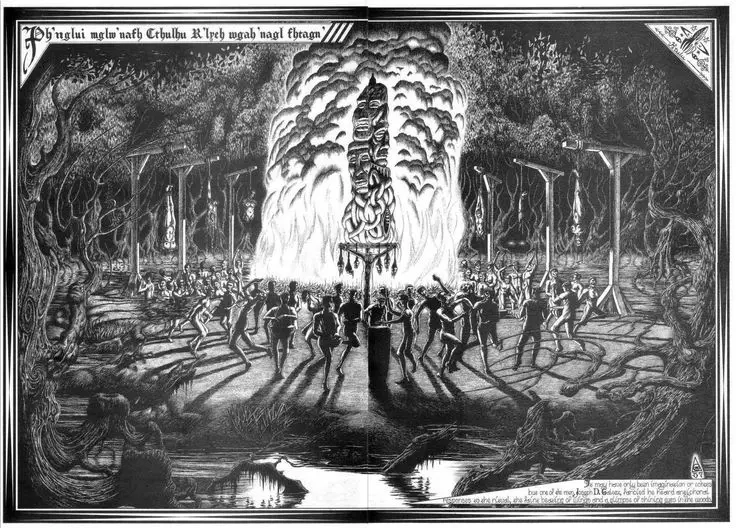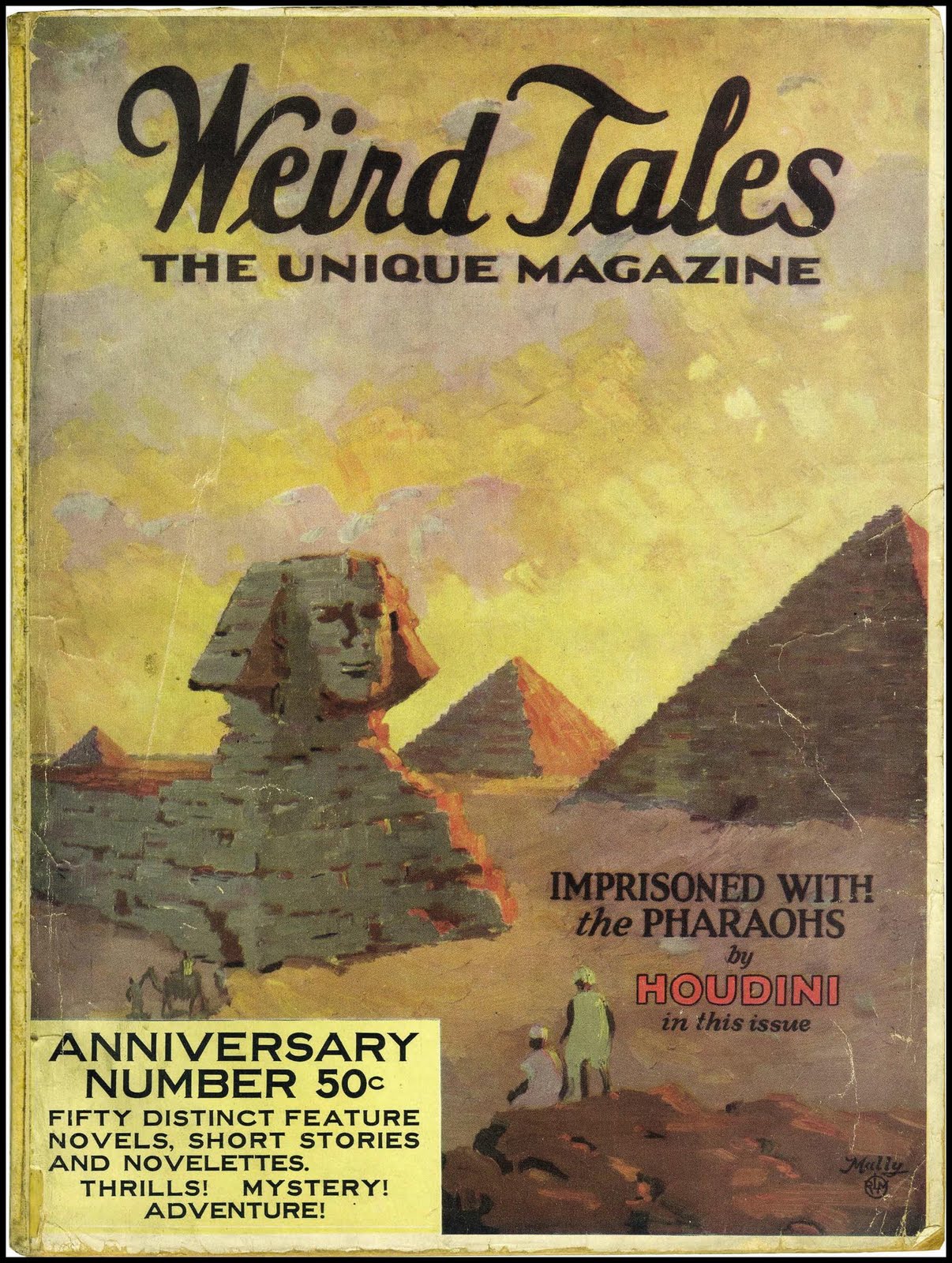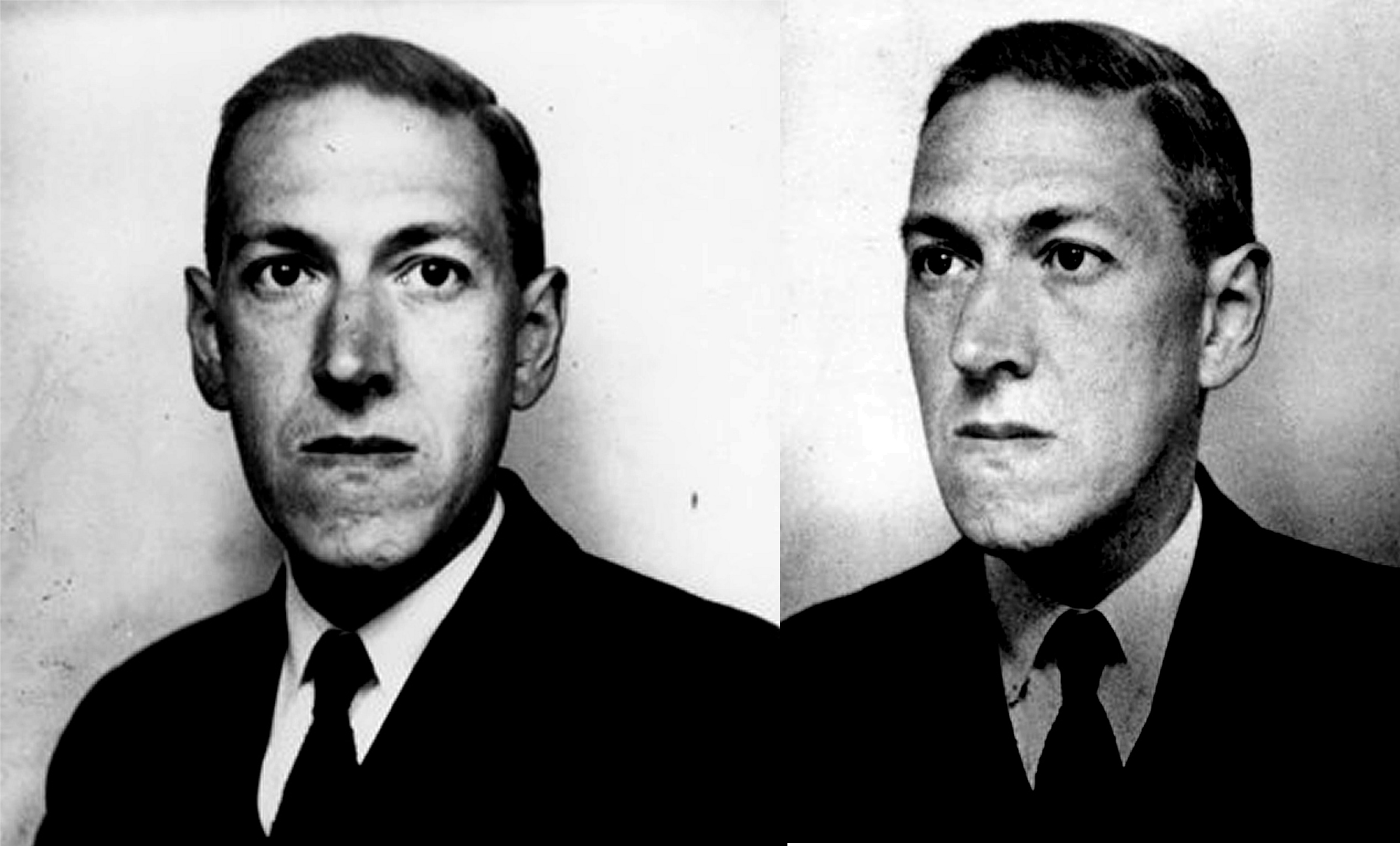Tag: Science fiction
In the beginning was the Word: the fantasy of Philip K. Dick in "Ubik"
Ubik is a meta novel. Everything in Ubik is verbalism, pure fiction. Ubik is the verb that "exists from the beginning", the verb that creates worlds. Ubik is pure appearance, but it is also the Principle. Platonic quotations emerge here and there in the novel: above all the Myth of the Cave and the curious application of the doctrine of universals: "things" are only masks placed on other masks, which fall as the process of regression or decay breaks down on them.
The "Great Game" by Jacques Bergier
"Lover of the Unusual and Scribe of Miracles" (as his visiting card stated), co-author with Louis Pauwels of the cult book "The morning of the wizards", explorer of infinite spaces, cosmonaut of inner space, scientist, agent secret, visionary, alchemist: all the faces of Jacques Bergier in his autobiography, "I'm not a legend", just published in Italian by Bietti publisher.
"The House on the Abyss" by William Hope Hodgson
A descent into hell turns into a space-time wandering. On the threshold of the twentieth century, the traditional katabasis is now tinged with the gloomy hues of already Einsteinian cosmicism. In a universe that has lost its center for centuries, WH Hodgson tries for the last time to get an overview of the Whole. The vision that he gives us is that of a universe without holds, in perennial decay, dominated by unknown forces that embody chaos and death, anticipating what will be the typical nightmares of HP Lovecraft's sepulchral nihilism.
Jacques Bergier and "Magic Realism": a new paradigm for the atomic age
Recently translated into Italian by the types of Il Palindromo, "In praise of the Fantastic" by the French writer and journalist Jacques Bergier, best known for having written with Louis Pauwels "The morning of the wizards", provides an analysis of the work of some "magic writers" at the time unknown to the French-speaking public (including Tolkien, Machen and Stanislav Lem), aimed at defining a new paradigm for the XNUMXst century that can combine science and science fiction with the ontological category of the "sacred".
“I remember Lemuria!”: The Shaver Mystery, a myth for the atomic age
Brought to the fore by the pulp magazine "Amazing Stories", directed by Ray Palmer, in the 40s of the last century, the "Mystery Shaver" is still remembered today as one of the most controversial and influential chapters of the vein - halfway between occultism and science fiction - of the so-called “Alternative Reality”.
Interview with Giuseppe Lippi: "The fantastic is the exception, not the rule"
Following the recent death of Giuseppe Lippi, which took place on Saturday 15 December, we want to share this interview released a few years ago to Andrea Scarabelli for the Antarès magazine, focused on the work of HP Lovecraft and on the role and importance of the Imaginary of the Fantastic in today's world. Our heartfelt thanks go to Lippi for everything he has done.
"Underground" civilizations in myth, occultism and "alternative reality"
Simultaneously with the publication of our article on "Underworld Civilizations in Fantastic Literature" appeared in Cosmic Dimension, we have drawn up here a brief excursus on the same topos in the sacred traditions, in the esoteric sphere and in the "alternative reality" of the twentieth century
HP Lovecraft, the "doors of perception" and the "cracks in the Great Wall"
How HPL analyzed in his literary production - and especially in "From Beyond" (1920) - the emergence of the irrational in the age of science and machines and anticipated the "psychedelic" suggestions on the pineal gland
Beasts, men or gods: HP Lovecraft's alien cults
(image: John Coulthart, "The Call of Cthulhu")
The presence of mythical-religious themes in the work of the "cosmic Poe" - as Jacques Bergier defined it - is of interest not only from a literary point of view, but also with respect to the relationship between modernity and this type of knowledge. As is now known even to non "experts", Howard Phillips Lovecraft defined himself as a «absolute materialist and mechanistic[1] persuaded that the world was the mathematical sum of physical impulses governed by chance and deriving human aspirations to mere fantasies. Yet, behind this profession of faith - which too many have stopped at when questioning the Loner of Providence - there is much more. For example, the fact that he had studied and therefore well knew the ancient myths of the West, Greco-Roman but also Germanic and Norse. Well, how are these interests related to yours World vision? Why should an enthusiastic follower of science and technology be passionate about those myths that the same followers of the Goddess Reason often relegate to expressions of a convoluted and premodern, "infantile" humanity? The contradiction, in reality, is only apparent.
HP Lovecraft: "Under the Pyramids"
Lovecraft, or the inconsistency of the real
Article by Sebastiano Fusco.
Originally posted on Antarès, HP Lovecraft # 2 - The cosmic horror of the Master of Providence n. 8/2014, and subsequently on the place of the ed. Bietti.
The last time I tried to get a copy of the Necronomicon - the occult book which contains the knowledge capable of opening up worlds and making monstrous creatures break into a reality unprepared to welcome them - was some time ago, in the ancient library of an Italian city of art, famous for its collection d'incunabula (you will allow me to remain vague, for the reasons that will become clear immediately). A "courteous librarian", as Lovecraft would have said, after some hesitation told me that, yes, he remembered the presence of the volume in the august shelves of that temple of knowledge, but that unfortunately, in an indefinite period, it had been lost, stolen or destroyed. And, as proof, he showed me the registers of the venerable institution in which the book was duly marked with a bibliographic record complete with all the necessary elements, and with the words "Removed" next to it. I expressed my regret that such a fearful work could have ended up in imprudent hands, and the courteous librarian agreed.

